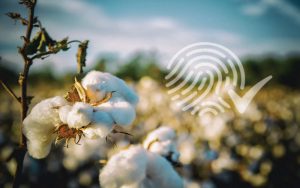 Oritain provides a solution to regulatory barriers with forensic isotopic testing, a method approved by the U.S. Customs and Border Protection (CBP), to verify the origin of cotton imported into the U.S.
Oritain provides a solution to regulatory barriers with forensic isotopic testing, a method approved by the U.S. Customs and Border Protection (CBP), to verify the origin of cotton imported into the U.S.
Sponsored Content
The textile industry has been a major contributor to the global economy for centuries. However, with the rise of counterfeit and fraud, the authenticity and integrity of this industry are being compromised. The National Council of Textile Organizations (NCTO) revealed that 72% of Chinese cotton products use Xinjiang cotton, linked to forced labor, many finding their way into U.S. supply chains and those of its free trade agreement regions. In response, the U.S. textiles association is pushing for stricter inspections and testing of such imports from China.
Rupert Hodges, Chief Commercial Officer at Oritain, observed, “Today’s consumer is not just buying a product; they are buying a story. They want to know where the raw materials in their clothes come from and the journey they’ve been on. For the textile industry, this means ensuring the authenticity of their products through every step of production.”
Fraud and unethical practices often undermine supply chains, especially in the cotton space. The Uyghur Forced Labor Prevention Act (UFLPA) and similar legislations worldwide are responses to these malpractices, which have put brand reputations on the line. Oritain provides a solution to these regulatory barriers with forensic isotopic testing, a method approved by the U.S. Customs and Border Protection (CBP), to verify the origin of cotton imported into the U.S.
Dr. Kate Jones, Oritain’s Senior Scientific Advisor, said, “Our technology is based on the naturally occurring isotopes found in soil, water, and air. These isotopes are unique to a specific geographical location and act as a natural fingerprint for the products grown there.”
Oritain’s team collects samples of raw cotton, or genuine products, directly from the farm or from other authorities around the globe. These samples are then analyzed using innovative chemical fingerprinting technology, robust and proven science developed in the criminal forensics fields, to identify the isotopic fingerprint of the cotton.
“Once we’ve created a genuine origin fingerprint, it can be used to audit a wide variety of products throughout the supply chain, from farm to fabric, to differentiate the legitimate from the fraudulent,” added Dr. Jones.
Hodges explained, “We help brands confirm their raw material sourcing and validate the integrity of their supply chain. We gather samples to test and compare them against our extensive database of global isotopic signatures. This allows us to provide robust scientific proof of origin and authenticity for our clients.”
Oritain’s forensic testing has already been implemented by major clothing brands, empowering them to assure their customers of the ethical and sustainable practices followed in their supply chain. Dr. Kate Jones added, “Our audits only require a small product sample and can integrate seamlessly into existing supply chains. This makes auditing at different stages in the supply chain, even up to a retail store, easy and scalable.”
Visit oritain.com/cotton to learn how you can promote supply chain transparency by verifying and authenticating the origin of your cotton.
This sponsored content was been provided by Oritain.
November/December 2023




